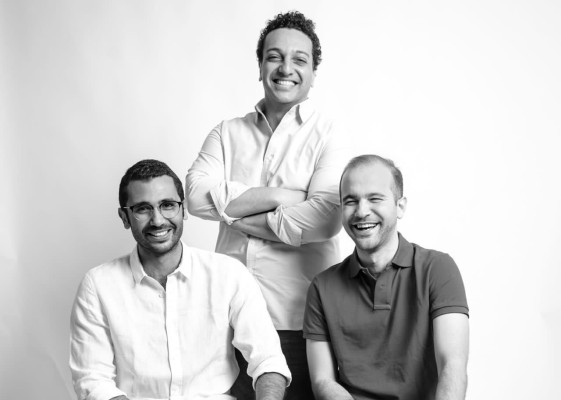Egyptian fintech Paymob, which enables merchants to accept digital payments online and in-store, announced today it has raised $50 million in Series B funding.
PayPal Ventures, the global corporate venture arm of PayPal, New-York-based venture capital Kora Capital, and London-based Clay Point led the round.
New participating investors include Helios Digital Ventures, British International Investment (formerly the CDC Group), and Nclude, the venture fund launched by Global Ventures and three Egyptian banks. Existing investors from its $18.5 million Series A last April — A15, FMO, and Global Ventures — doubled down.
The round, which is one of the largest at this stage in Egypt and MENA, brings Paymob’s total funding to over $68.5 million.
Paymob works with businesses and merchants of all sizes. Its omnichannel payment infrastructure allows them to accept payments via various methods, which CEO Islam Shawky claims to be the largest in Egypt. These different options include bank cards, mobile wallets, QR payments, bank cards’ installments, BNPL, and consumer finance payment options. Paymob also has a POS solution for offline merchants where they can receive in-store card payments.
“Our mission is that we want to help the merchants grow,” explained Shawsky, who launched the Cairo-based fintech in 2015 with Alain El Hajj and Mostafa Menessy. “So together we offer merchants, whether an SME or an international brand, the ability to accept all those payment methods and thus, increasing the probability and enhancing the probability for them to purchase and hopefully grow the revenue.”
Last year, Paymob had over 35,000 local and international merchants using its payment gateways like Swvl, LG, Breadfast, and Homzmart. This merchant number, which now includes the likes of Vodafone, LG, Virgin, Chalhoub Group, and Decathlon, has tripled to over 100,000. Shawky says Paymob plans to reach a million SMEs in the next couple of years.
It’s a grand forecast considering Egypt has over 3 million SMEs. However, Paymob’s strategy to reach that figure is backed by a new product launch in partnership with Mastercard: Tap-on-Phone contactless payments.
For micro and small merchants, the cost of obtaining a point-of-sale machine and its accompanying hardware can be cutthroat. It presents a considerable barrier to scale as they’ll need to process large volumes over a long period to recoup that expense.
The Tap-on-phone product leverages contactless payments technology so that these merchants can turn their NFC-enabled smartphones –personal or commercial– into a POS by downloading a Paymob-powered app.
“For us, this is a game changer for face-to-face transactions because this opens the market up for us and helps us grow tremendously,” said the CEO. He also mentioned that the product, to be rolled out for new merchants while acting as a supplement to traditional point of sale devices, allows Paymob to stay ahead of competition such as Fawry and PayTabs. Similar companies in other regions across Africa include CinetPay, Ozow and Flutterwave.
Paymob’s extensive product suite is what attracted co-lead investor Kora Management. According to Nitin Saigal, the firm’s founder, Paymob is “innovating at scale in the offline merchant acquiring and online payment gateway space as Egypt and the Middle East transition from being primarily cash-led to a digital heavy mode of transacting.” Among its other plans for merchants include introducing a new checkout platform and the launch of cards to enable B2B transactions.
Since last year, various fintechs in Egypt have lauded the apex bank’s (the Central Bank of Egypt) financial inclusion initiatives, and Paymob is no exception. Shawky says these initiatives — including the issuance of over 20 million Meeza cards and 25 million wallets and giving companies licenses to distribute and operate POS devices — are some of the reasons why Paymob has witnessed remarkable growth.
Paymob reported a total payment volume of $5 billion last year; it couldn’t be learned what this number looks like right now. But in other metrics shared by the company, it said its monthly volumes grew 4x year-on-year as of December 2021. Paymob has carried out over 120 million transactions, per information on its website.
The expansion to Pakistan could see Paymob grow faster by year’s end. According to a statement, the Egyptian fintech plans to add 100,000 merchants within the next two years from the South Asian country, home to over 4 million SMEs.
Paymob claims to serve merchants in other markets, including Kenya and Palestine; however, it is yet to set shop in these regions. Instead, the company has its sights set on a few GCC and North Africa markets as this growth financing provides the required firepower to launch in them. Paymob will also pursue more market share in Egypt as well as introduce more offerings in its product suite, including expense management software and provision of working capital.
“Paymob shares our mission and ambition of advancing digital payments adoption – it has made impressive strides in supporting the growth and success of underserved SMBs,” said Ashish Aggarwal, the director at co-lead investor PayPal Ventures, in a statement.
This is PayPal’s first MENA investment and seems to be the CVC firm’s second in Africa after South African open finance startup Stitch. Despite a global slowdown in venture capital (yet to reflect in Africa as much), PayPal’s participation continues the trend from last year that saw global investors make their first set of deals, particularly in fintech, a sector that contributed 60% of the total VC funding.
Credit: Source link


Comments are closed.